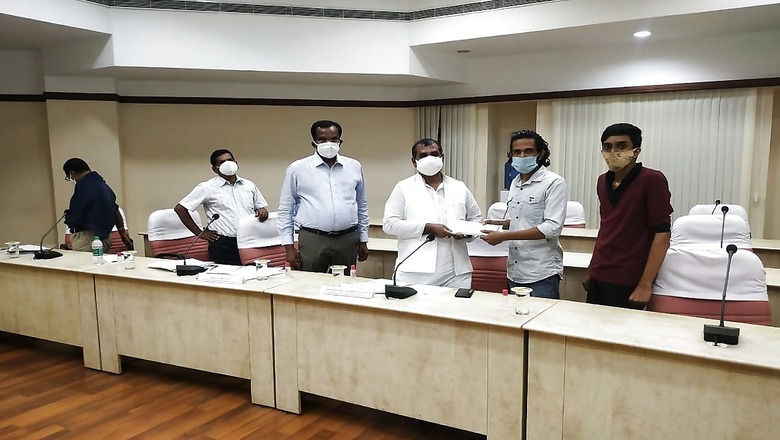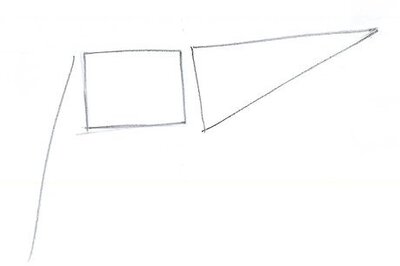
views
Days after a professor resigned alleging caste-based discrimination at IIT-Madras, the vice-chairman of the National Commission for Scheduled Castes (NCSC), Arun Haldar visited the campus to review the admission and recruitment process of SC students and employees. Haldar has asked the premier institute to submit a report on the representations of SC, STs on the campus.
A student collective called ChintaBar, which was formed in 2014 along with the members of SC/ST employees’ Welfare Association met Haldar, has presented a list of demands pertaining to the grim representation of marginalized identities in IIT (Madras).
A member of SC/ST Employees Welfare Union on condition of anonymity said, “The question of representation of SC/STs in non-teaching staff is not so grave but when it comes to teaching posts, we have to fight against a bias that creates a backlog for SC/STs. The union raised the issue of backlog in SC/ST recruitments for teaching posts.” The member from the union was present at the meeting.
The demands made by the group highlighted the lack of academic support mechanisms the students from the marginalized groups get, and how the problems doubled with being given only Rs 250 as monthly allowances. The group demanded that the allowance to be raised to Rs 1000 for full academic support.
NCSC has also visited several other organizations associated with marginalized communities in Tamil Nadu and Pondicherry.
Halder told News18.com: “This is the first time that people from SC/ST organizations sat along with director, registrar, and dean on the demands of the SC, ST organizations. It was a satisfying experience, and I was happy to meet them. We have asked for a report on the representation of SC/STs in IIT, which will be submitted to NCSC.”
The government’s reservation policy mandates that institutes allocate 15% seats for students from the SCs, 7.5% from STs and 27% from OBCs.
Recently K Somaprasad, MP, quoted the information obtained through Right to Information (RTI), and emphasized that 20 IITs have failed to give admission to constitutionally mandated number of SC students and 14 IITs have failed to record a mandated number of admission rates of OBCs, as per the rules.
The government data from past years has revealed the grim picture of the low number of SC/ST/OBCs in IITs.
Devan, from the collective called ChintaBar met the VC of NCSC, and said, “I was present at the meeting and gave our list of demands to the VC informing him about the concerns students from SC/ST especially regarding the violations in implementing reservations in PhD and MS, and absence of SC/ST/OBC cells in the institute.”
The points made in the letter included, “Set-up a permanent SC/ST/OBC cell at IIT-Madras with the mandate of ensuring the continued implementation of Central Educational Institutions (Reservation in Admission) Act, 2006 and dissemination of special support provided by IITM for students from marginalized sections”; “Ensure strict compliance of reservation as per Central Educational Institutions (Reservation in Admissions) Act, 2006 & Central Educational Institutions (Reservation in Teachers’ Cadre) Act, 2019”; “Increase admissions of SC and ST candidates to MS and PhD programs during admission sessions in the next three years to reach the respective mandated percentages of 15 per cent and 7.5 percent of admissions by 2023-24”; “Set up an internal panel of IITM faculty, non-teaching staff, and students to monitor the admission procedure and to ensure that the target of fulfilling reservations in all programs is achieved in 2023-24”; “Ensure category wise notification of available research program (MS and PhD) seats in all departments gets released during every admission cycle and ensure the immediate filling of backlog research seats, if any remain unfilled during an admission cycle”.
Other demands included, “ensure SC/ST/OBC representatives in the faculty and research scholars’ selection panels and make it mandatory to publish their reports of the selection process”; “Publish the yearly category-wise data on applications received, candidates called for interview, candidates offered admission, and candidates admitted in all programs (and particularly for research programs) in IITM along with cut-off marks obtained by the admitted candidates”; “Introduce student-friendly academic support programs to overcome the academic disparities”; “A hike in the institute SC/ST scholarship to a minimum of ₹1000 per month”; “A comprehensive study by the institute on the mental health status of the students with specific attention to the students from SC/ST/OBC sections and formulation for a permanent institutional mechanism to address the problem of mental health based on the study recommendations”; “Publish the reservation roster for the institute on its official website.”
The visit comes days after Assistant Professor in the institute Vipin P Viteel resigned alleging caste-based discrimination and recommending to administration constitution of SC/ST cell. Viteel was a postdoctoral fellow at University of Paris 1 Panéthon-Sorbonne and CNRS (2018). He completed his Ph.D in Economics from George Mason University, USA (2016). His resignation note dwelled on the poor support system for marginalized communities in premium institutes and asked for the constitution of grievance redressal mechanism.
Read all the Latest News, Breaking News and Coronavirus News here.














Comments
0 comment